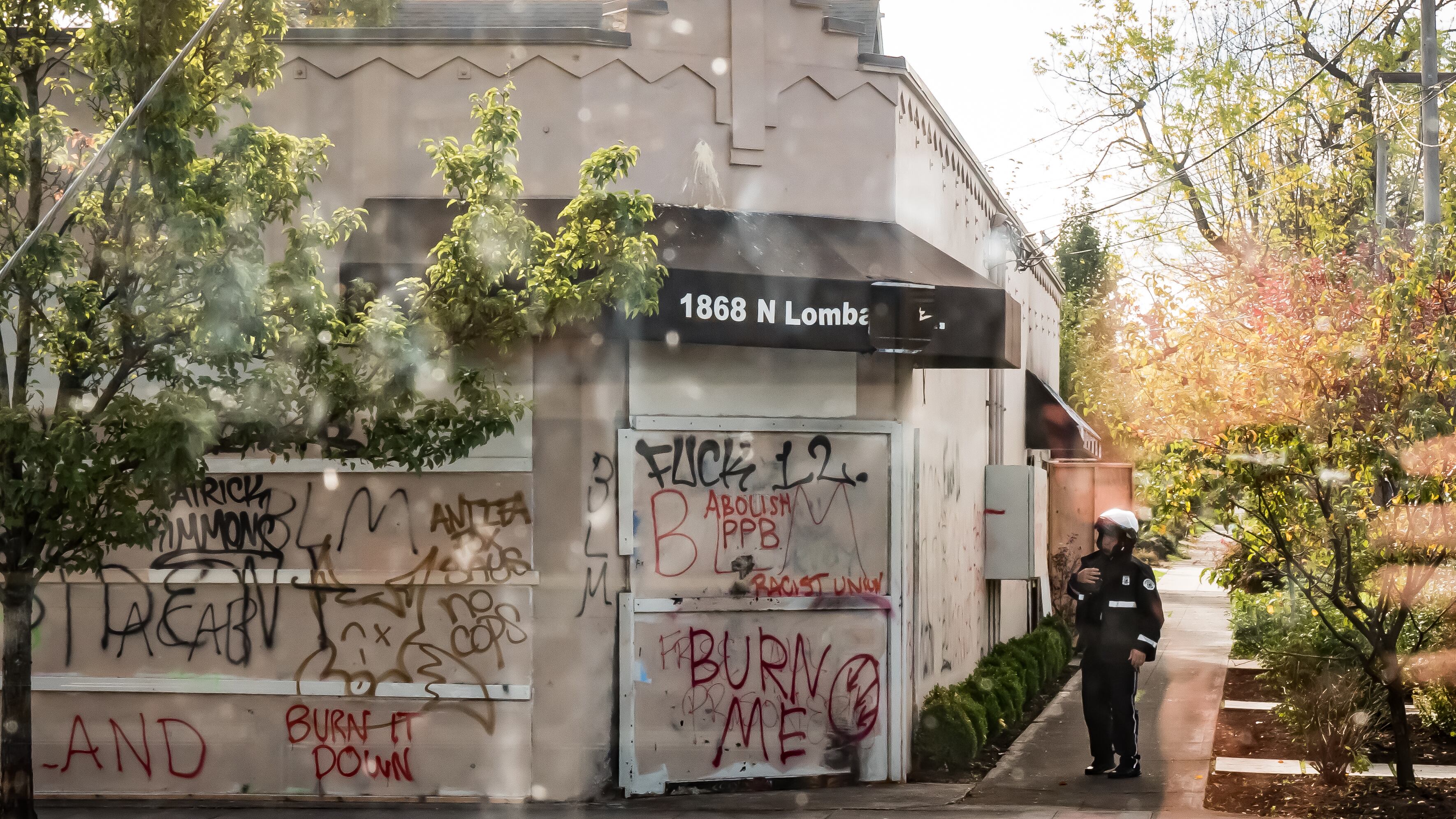On Jan. 13, after nearly a yearlong delay due to the COVID-19 pandemic, the city of Portland and the Portland Police Association resumed negotiations for their collective bargaining agreement.
That was 133 days ago. Per state labor law, if a consensus isn’t reached after 150 days of “good faith negotiations,” either party is legally entitled to request private mediation through the state’s Employment Relations Board.
A year after the start of a nationwide reckoning with racist policing, transparency around law enforcement policy feels especially critical. There are few matters that Portlanders take such intense interest in. Yet if a deal isn’t struck in less than a month, either side can move the bargaining table behind closed doors.
Currently, bargaining sessions between the city and PPA alternate between being public and private.
During the last public bargaining session, on May 5, the City Attorney’s Office proposed that all future contract bargaining sessions between the PPA and the city be open to the public. “When they [the public] don’t see that process unfolding, then there is concern about how we ended up with the contract we ended up with,” chief deputy city attorney Heidi Brown said during that session.
Should the parties enter mediation, however, the quasi-public process would become invisible. And with 17 days until the clock runs out, it’s unclear whether the city and the cops’ union will reach an agreement before then.
“The pressure ratchets as the 150 days counts down,” says Keith Cunningham-Parmeter, a labor lawyer and professor at Willamette University College of Law.
To date, the city and PPA have reached “tentative agreements” for fewer than 30 of the 68 articles in the contract, according to the city’s bargaining website. (Some articles will remain unchanged because neither party proposed to amend them.)
And the parties haven’t reached consensus on some big-ticket items. Take Article 20, which outlines discipline procedures and mandates that if the city must discipline or reprimand an officer, “it shall be done in a manner that is least likely to embarrass the officer before other officers or the public.” There’s also Article 22, which dictates the grievance and arbitration process for union members.
Meanwhile, the fate of two bills making their way through the Oregon Legislature will affect what the city and the police union are haggling over. Senate Bill 621 would allow the city to implement its new police oversight board without mandatory bargaining, and House Bill 2930 would make it more difficult for an arbitrator to overturn a law enforcement agency’s decision to terminate an officer for misconduct.
That said, the 150-day mark isn’t a hard and fast deadline, says Stacy Chamberlain, executive director of Oregon’s American Federation of State, County and Municipal Employees Council 75.
“I wouldn’t necessarily think that something magic might happen on the 151st day,” Chamberlain says. In fact, both parties can continue to bargain past the 150 days if they’re making progress. However, they can request mediation “if they get stuck and they’re unable to reach agreement, or they’re getting hung up on issues and they can’t proceed any further,” she says.
Mediation, which lasts a minimum of 15 days, happens behind closed doors.
If the parties still don’t reach an agreement during mediation, they reach what’s called an “impasse.” They can then initiate arbitration, where an arbitrator issues a final and binding decision, siding with the “last best offer” of only one party.
“It’s an all or nothing deal,” Chamberlain says. In other words, the arbitrator doesn’t pick and choose the best proposals from each side; there is one winner.
Neither the City Attorney’s Office nor the PPA responded to requests for comment about its bargaining strategy.
An observer might wonder if one side, or both, would prefer to have a franker conversation, away from public scrutiny, about the politically dicey issues of police discipline and use of force. The city and PPA have been down this road before. In 2010, after five public bargaining sessions, the parties entered private mediation, emerging shortly thereafter with a deal.
Cunningham-Parmeter agrees that the parties might, in some instances, strategically run out the clock on public hearings. But that tactic becomes increasingly chancy as they near arbitration.
“It’s risky to give all of the issues to the arbitrator. It kind of depends on who wants more leverage and who is more risk-averse,” Cunningham-Parmeter says. “Arbitration is very rare. It’s just like civil litigation, [where] 95% of cases settle before it gets to a jury. Lawyers don’t want to give up that control and roll the dice with a jury. Going to an arbitrator is kind of the same thing.”
